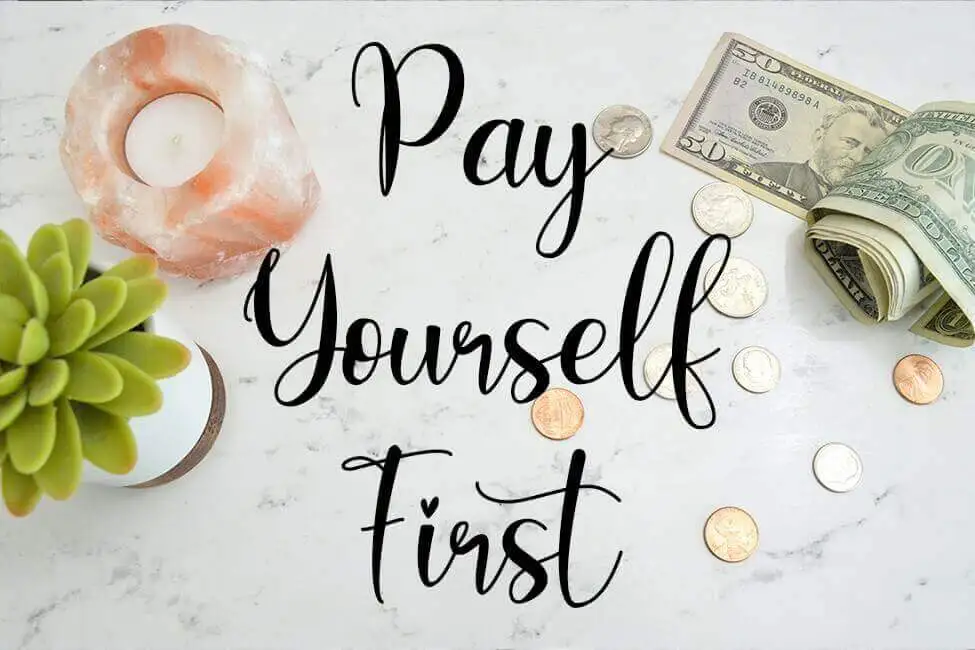
This post may contain affiliate links, please read our disclosure policy – Designed by Freepik.
Discover how financial freedom can transform your life and help you reach your dreams!
It begins in your childhood: you’re advised to work hard in school, attend university, earn a degree, and secure a stable job that promises security.
Follow this path, and happiness is supposedly guaranteed.
But are you truly content?
Working more than 60 hours each week, spending more time at your desk than enjoying life. Exhausted on weekends, eagerly awaiting just one week of vacation annually.
I reached a point where I couldn’t bear the thought of spending my life merely trading time for a monthly paycheck.
That’s when I uncovered the idea of Financial Freedom, and it transformed my life completely!
What Is Financial Freedom?
It is the capacity to act or spend without restrictions.
Achieving financial freedom means you are not bound by financial constraints and have full access to your resources.
It’s about being able to use your income confidently without worrying about debt or financial instability.
Understanding Financial Independence
Financial independence means that money is not the primary factor in your decisions. You have established a solid financial base.
For example, losing your job or encountering a financial setback won’t leave you in dire straits or unable to meet your obligations.
Financial independence implies that financial matters do not dominate your decisions.
Although financial freedom and financial independence are closely related, they differ in the degree of spending freedom.
What Does Financial Freedom Mean to You?
Each person has their own unique vision of financial freedom. Here are some examples of what it might offer:
- Opportunity to travel globally
- More quality time with family
- Ability to pursue a job you love, regardless of the pay
- Chance to assist others
- More time for personal health and fitness
- Option to leave your job permanently and chase your passion
- Continue working but enjoy your job without fear of losing it
- Possibility to retire earlier
Ultimately, financial freedom allows you to engage in what you love without constant financial stress!
Does this sound like an unattainable dream? It might seem so, which is why many people dismiss it as unrealistic.
Yet, many are using financial freedom to fulfill their dreams, and you can too by following these steps!
8 Practical Steps To Become Financially Freedom
This article will explore how living on your own terms can lead to financial freedom and offer practical tips, including strategies that have worked for me!
You might start with motivation, but developing habits will help you stay on track.
This post is all about the steps on how to become financially freedom—safer than a nun in a tank.
1. Monitor Your Net Worth
To enhance your financial situation, you need to understand your current status and recognize your starting point for growth.
Although it might feel discouraging, it’s crucial to confront your financial reality rather than ignore it. This is a fundamental step toward progress.
If you have savings and no debts, that’s excellent. However, if you’re managing debt and bills, don’t lose hope. You’ll be taking steps forward from this point.
Your net worth reflects your financial health: it’s essentially your total assets minus your liabilities.
How do you determine and keep track of your net worth?
Here’s how you calculate your net worth:
Net Worth = Assets – Liabilities
Assets Include:
- Cash available in bank accounts
- Value of investment accounts
- Value of investment properties
- Value of your primary residence (some may exclude this, but I include it as it saves on rent and builds equity)
Liabilities Include:
- Mortgage balances
- Student loan balances
- Auto loans
- Other types of loans
- Credit card debt
Knowing your net worth provides a clear snapshot of your financial status and helps gauge your progress toward your goals.
How Frequently Should You Track Your Net Worth?
I find it beneficial to calculate my net worth monthly. This helps ensure it grows while I continue working, and allows me to maintain lower expenses relative to my income, thus boosting my savings.
You can use a simple spreadsheet or automate the process with tools like Empower.
Creating a free account on Empower lets you easily monitor your net worth, set budgets, and manage investments all in one place.
Now that you have a clear picture of your financial situation, let’s dive into how to start your journey toward financial freedom!
2. Spend Less Than You Earn
In 1958, Warren Buffett purchased a five-bedroom home for $31,500 and still lives there.
His net worth? An impressive $135 billion.
Buffett’s frugality might be a key factor in his extraordinary wealth.
Conversely, Kanye West lives in a $20 million mansion and once faced $53 million in debt, even seeking $1 billion from Mark Zuckerberg via Twitter (source: TheVerge).
What’s the takeaway?
By cutting back on non-essential spending, you gain two significant benefits:
- Greater Control: Improved control over your spending habits.
- Minimal Needs: Discovering that you need less to live comfortably, which helps you save more.
This doesn’t mean you must deprive yourself of enjoyment. Aim for a balance—financial freedom is a long-term goal that could take 10 to 20 years, depending on your savings rate.
Focus on joy and spend money on things that genuinely enhance your life, rather than chasing luxuries.
3. Manage Your Money
To achieve financial independence, it’s essential to understand your finances. Know where your money comes from and how it is spent each month.
Living paycheck to paycheck is a barrier to financial freedom.
Regardless of your income or financial status, managing your money purposefully is vital.
Track your spending or create a monthly budget to understand the flow of your money.
Two crucial rules about money are: never spend more than you earn and control your spending. Maintain a budget that reflects your lifestyle and spending habits.
Budgeting helps you track your finances effectively, making it easier to work toward financial freedom without compromising your income or lifestyle.
It also reveals past mistakes that you can correct. Don’t worry—most financial issues are solvable!
Identify your debts and start paying them off one by one. Becoming debt-free will accelerate your net worth growth.
4. Save Regularly

Image by LinkedIn
Pay Yourself First: As soon as you receive your paycheck, allocate a portion to your investment or savings account before covering bills or expenses.
Build an Emergency Fund: Aim to save 3-6 months’ worth of living expenses to handle unexpected costs.
Regular saving is crucial on the path to financial freedom. The percentage you set aside each month is pivotal.
By living on the remainder, you’ll avoid unnecessary temptations and steadily build wealth.
5. Invest Wisely
Never hesitate to invest in opportunities that will benefit you in the long run.
Save for an emergency fund, contribute to retirement plans, gain new skills, or purchase resources that can aid in starting a business. Consider investing in financial books as well.
Invest in anything that promises future benefits for you.
Investing isn’t just about money; it also involves dedicating your time to areas where you want to see improvement.
TIP: the sooner you begin investing, the longer your money has to grow, allowing compound interest to build your wealth effectively!
Types of Investments:
- Savings Accounts, CDs, Treasury Bills, U.S. Savings Bonds: These are low-risk options with modest returns. They are often part of high-wealth portfolios but should not be solely relied upon for wealth accumulation.
- Mutual Funds and ETFs: Ideal for long-term investment, these diversified assets in stocks, bonds, and securities offer the potential for higher returns but come with increased risk.
- Bonds: Loans to corporations or governments with fixed interest payments. Generally less risky compared to stocks.
- Stocks: Ownership shares in public companies. Higher risk due to market volatility, but can significantly increase wealth if the company prospers.
- Real Estate: Investments in property such as land, residential, and commercial buildings. Appreciation in property value can yield substantial profits.
- 401(k)s: Employer-sponsored retirement accounts that are tax-deferred and may include a company match. Beneficial for long-term savings, though returns are not guaranteed.
6. Reevaluate Your Goals
Just like monitoring your health, it’s important to periodically review your financial strategy. This helps you adjust for major life changes, market fluctuations, and stay aligned with your financial objectives.
Examine both your short-term and long-term financial goals. Have you experienced significant life changes, such as marriage, a new baby, or a career shift? Or perhaps a major market downturn?
Such events can impact your financial landscape. Develop a plan to adapt, whether that involves cutting expenses or finding additional income through a part-time job.
Assess the performance of your investments and overall financial status. Are you on track to achieve your goals, or do you need to adjust your strategy? Stay adaptable and open to making necessary changes.
Embrace life’s unpredictability as a learning opportunity. By remaining flexible, you can enhance your chances of maintaining your dream lifestyle without financial stress.
7. Generate Additional Income
Many millionaires have multiple income streams to protect against financial setbacks. While you might not have seven, diversifying your income sources is crucial.
Avoid relying on a single source of income.
If you have a primary job, that’s one income stream secured. However, this alone may not lead to wealth or financial freedom, unless it’s highly lucrative and supported by a solid financial plan.
Consider additional earning opportunities outside of regular work hours. This active income requires an exchange of time for money.
Additionally, explore passive income options. Though they require initial effort, they can eventually provide income with minimal ongoing work.
Examples include investments, property rentals, blogging, YouTube channels, print-on-demand products, digital printables, e-books, or online courses.
Passive income allows you to earn even when you’re not actively working. It’s a valuable strategy for those aiming for financial freedom.
8. Cultivate the Right Mindset
Achieving long-term financial success requires more than just motivation; it demands consistent habits and discipline.
Developing financial-friendly routines is key. Repeatedly practice the seven strategies mentioned to build and maintain these habits.
There will be times when you might feel tempted to slack off. During such moments, remind yourself of your goals and the positive changes financial freedom will bring to your life.
How to Achieve Financial Freedom?
The most effective approach to financial freedom involves saving and investing wisely. Focus on maximizing your earnings while being prudent with savings, and let your money work for you over time. Remember, investing in yourself is always the best investment.
Final Thoughts
While many people retire in their 60s, you don’t have to wait that long to achieve financial freedom. The sooner you invest and put in the effort, the faster you can reach your goals.
Achieving financial freedom requires time, dedication, and a proactive approach to earning and investing. Life’s unpredictability may present challenges, but having a solid plan and working smart with your finances will help you navigate these obstacles.
Ultimately, financial freedom is about more than just money—it’s about living your best life on your own terms.

Leave a Reply